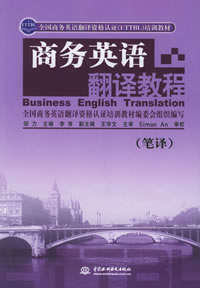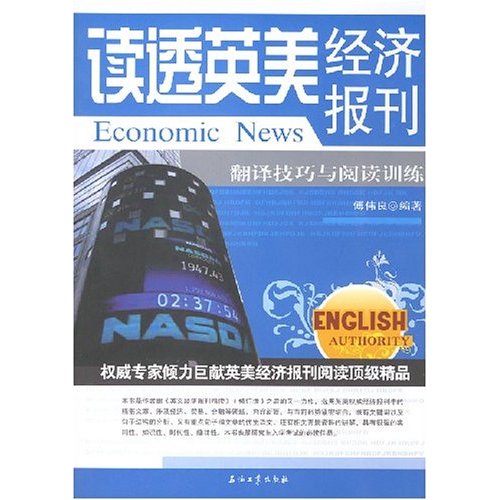直译与意译(II)
作者:古龙 2009-07-04




语际翻译公司 转载请注明https://www.scientrans.com
∗本栏目部分文章内容来自互联网,部分已经过本站编辑和整理,如有版权事宜请联系Email/MSN jesczhao@hotmail.com
3. how to use free translation properly?
3.1 if it was some trouble to understand a sentence in using literal translation, use free translation.
in which suituation the translators can not use literal translation? when some sentences that the way of expressive between source language and target language are different, should not use literal translation. if use literal translation, target language readers would have some trouble to understand, then make the translation unacceptable. in these suituation, free translation should in use. free translation expresses the general idea of the original according to the meaning of the original, and does not pay attention to the details. but translation should be fluent and natural.
there are two examples:⑥
11) i gave my youth to the sea and i came home and gave her ( my wife ) my old age.
literal translation: 我把青春献给海洋,我回家的时候便把老年给了我的妻子.
free translation: 我把青春献给海洋,等我回到家里见到妻子的时候,已经是白发苍苍了.
12) maybe kino has cut off his own head and destroyed himself.
literal translation: 也许kino会割掉自己的脑袋,把自己毁了.
free translation: 也许kino走了绝路,自己毁了自己.
from the example 12), the original "cut off his head" means have done something badly, felt into predicament. if a translator translated the original literally, his translating would make target language readers confused, after reading, target language readers would feel unacceptable. so translators should use free translation in the example 11) and 12). because free translation can tell the ture meaning to target language readers.
some sentences, if translate literally are also fluent and natural that it seems these sentences should translate literally. but translated these sentences literally could not express the deep meaning of the original. if we use free translation,effect would be better than literal translation. free translation could express the deep meaning of the original sentences.
for example: ⑦
13) cast pearls before swine.
literal translation: 把珍珠扔到猪面前.
free translation: 对牛弹琴.
14) barbara was born with a silver spoon in her mouth.
literal translation: barbara嘴里叼着银调羹出生的.
free translation: barbara出生最富贵人家.
example 13) and 14) are metaphor, have deep moral. if translated literally, translations are fluent and natural, but it could not express the deep meaning of the oroginal, it is unadvisable.
there is another suituation which should use free translation: a sentense that use idioms.
for example:⑧
15) something unexpected may happen ang time.
free translation: 天有不测风云.
literal translation: 一些没有预料到的事会随时发生.
in english, this sentence is very common. but if translated it literally into chinese, it did not accord with the habit of expressive. on the contrarary, it would be unitelligible and would not achive the effect of the original. it would make target language readers inappreciatable. but in the example 15), free translation used a chinese idioms, after reading target language readers would comprehened and have nice feeling. so free translation is a good choice when literal translation could not be used.
3.2 don not add personal emotion to the original works.
translation is a brige between source language and target language. task of translation is to express the meaning and manifestation of the source language message by target language. the translation should give target language readers almost the same feeling as source language readers. if target language readers and source language readers had almost the same feeling after reading the translation, it was successful. if target language readers and source language readers had different feeling after reading the translation, it showed the translation was unqualified. from the angle of translation, actually, the feeling of readers can judge a translation.
- 评论
- seme:文章内容文章内容文章内容文章内容文章内容文章内容文章内容文章内容文章内容 章内容文章内容文章内容文章内容文章内容
- seme:文章内容文章内容文章内容文章内容文章内容文章内容文章内容文章内容文章内容 章内容文章内容文章内容文章内容文章内容

- 英汉翻译中的直译与意译
2009-6-19 18:40:04 - 翻译是一门艺术,是一门带有刨造性、科学性的艺术。清代末期翻译家严复。在《天演论》的《译例言》中说:“译事三难、信、达、雅”如何达到“信、达、雅”大体说来有两种方法,...
- 英汉翻译中的陷阱
2009-6-19 10:32:38 - 英语中有些表达方法仿佛很容易理解,但翻译起来特别容易出错.我们一定要小心这些陷阱.例如下例: ...
- 第四届IEEE生物信息与生…
2009-6-30 19:42:01 - 基本信息 主办单位: 四川大学,IEEE生物医学工程协会(EMBS) 承办单位 开始日期 2010/06/18 结束日期 截稿日期 2009/1...
- 第九届全国光电技术学术…
2009-6-30 19:35:58 - 基本信息主办单位: 中国宇航学会光电技术专业委员会承办单位 开始日期 2009/11/01结束日期 截稿日期 2009...
















